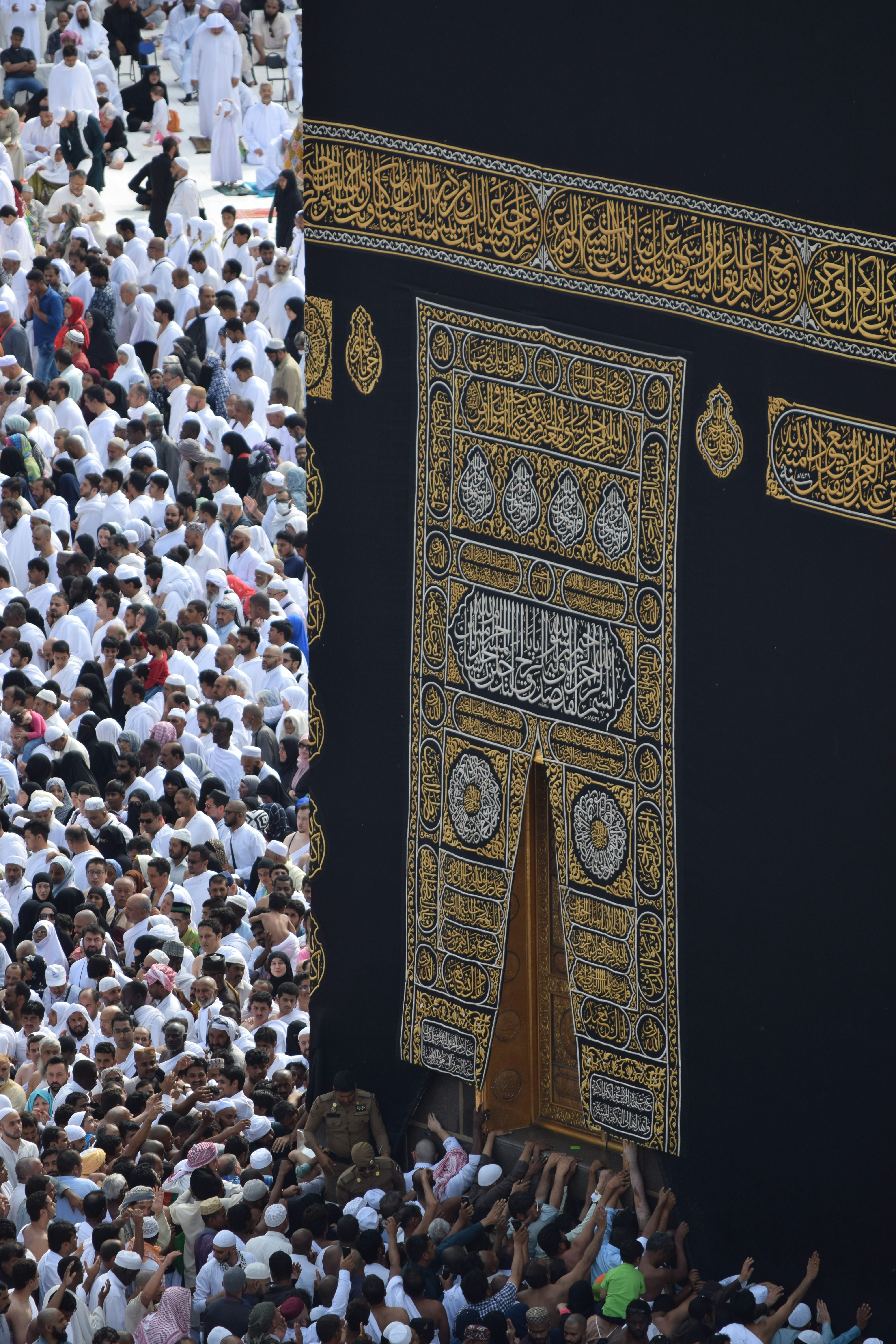Muslim Pilgrimage 2025
Hajj, the fifth pillar of Islam, is a sacred pilgrimage to Makkah (Mecca) that every financially and physically capable Muslim must undertake at least once in their lifetime. Hajj Muslim pilgrimage is a spiritual journey that symbolizes unity, humility, and devotion to Allah (SWT).
Usually Performed during the Islamic month of Dhul-Hijjah, Hajj retraces the footsteps of Prophet Ibrahim (AS), his wife Hajar, and their son Prophet Ismail (AS). Millions of Muslims from around the world gather in Makkah, dressed in simple white garments (Ihram), leaving behind worldly distinctions to stand equal before Allah.
In this blog, we will explore the significance, rituals, and spiritual lessons of Hajj, along with practical tips for pilgrims.
The Significance of Hajj in Islam
Allah (SWT) commands in the Quran:
“And [due] to Allah from the people is a pilgrimage to the House—for whoever is able to find thereto a way.” (Quran 3:97)
The Prophet Muhammad (PBUH) said:
“Whoever performs Hajj for the sake of Allah and does not utter any obscene speech or do any evil deed, will go back (free of sin) as his mother bore him.” (Bukhari & Muslim)
The pilgrimage consists of several key rituals, all performed over a period of five to six days. Key rituals include walking around the Kaaba (Tawaf), standing in prayer at Arafat (Wuquf), and symbolically stoning the devil at Mina. These acts reinforce faith and help participants reflect on their lives and their relationship with God.
1. Preparation & Intention (Ihram)
Before entering Makkah, pilgrims enter the state of Ihram
Wearing simple white garments (two unstitched cloths for men, modest dress for women).
Avoiding争吵, perfume, cutting hair, and marital relations.
Making the Niyyah (intention) for Hajj by reciting the Talbiyah:
“Labbayk Allahumma Labbayk…” (Here I am, O Allah, here I am…)
2. Arrival in Makkah – Tawaf & Sa’i (8th day of Dhul-Hijjah, Yawm al-Tarwiyah)
Tawaf al-Qudum (Arrival Tawaf): Pilgrims circle the Kaaba seven times counterclockwise, starting at the Black Stone.
Sa’i: Walking seven times between the hills of Safa and Marwah, commemorating Hajar’s search for water for her son Ismail.
3. Day of Arafah (9th Dhul-Hijjah)
The most crucial day of Hajj:
Pilgrims gather at the plain of Arafah from noon until sunset, praying and seeking forgiveness.
The Prophet (PBUH) said: “Hajj is Arafah.” (Tirmidhi)
Standing here with sincerity can lead to complete forgiveness of sins.
4. Muzdalifah & Mina
After sunset, pilgrims move to Muzdalifah, where they spend the night under the open sky. This night marks the beginning of the Eid al-Adha celebrations, where pilgrims collect pebbles for the next ritual.
They then proceed to Mina for Rami al-Jamarat (stoning the devil), symbolizing resistance to temptation after EID-UL-ADHA.
5. Eid al-Adha & Qurbani (Sacrifice) (10th day of Dhul-Hijjah, Eid al-Adha)
On the 10th of Dhul-Hijjah, pilgrims:
Offer an animal sacrifice (Qurbani) in remembrance of Ibrahim’s willingness to sacrifice Ismail.
Shave or trim hair (Halq/Taqsir), marking the end of Ihram restrictions.
6.Ramy al-Jamarat (11th, 12th, and 13th days of Dhul-Hijjah)
Pilgrims perform the ritual of Ramy al-Jamarat, where they throw seven pebbles at each of the three Jamarat pillars, symbolizing the rejection of evil. This ritual is performed on the 11th, 12th, and 13th days of Dhul-Hijjah.
7. Farewell Tawaf (Tawaf al-Wida)
Before leaving Makkah, pilgrims perform a final Tawaf around the Kaaba, bidding farewell to the Sacred House.
Spiritual Lessons from Hajj
Equality & Unity – The Ihram removes all distinctions, reminding Muslims that all are equal before Allah.
Patience & Sacrifice – Hajj tests physical endurance and spiritual resilience.
Repentance & Renewal – Pilgrims return with a cleansed heart, free from past sins.
Submission to Allah – Following the footsteps of Prophets teaches complete trust in Allah’s will.
Tips for Pilgrims
✔ Physical Preparation: Hajj involves long walks and crowded places—stay fit and hydrated.
✔ Financial Planning: Save in advance and ensure all expenses are halal.
✔ Patience & Manners: Avoid arguments and focus on worship.
✔ Learn the Rituals: Study the steps of Hajj and necessary duas (supplications).
✔ Health & Safety: Follow medical advice, carry necessary medications, and be cautious in crowds.
(Hajj Muslim pilgrimage)
FAQ’S
Is there a visa for Hajj?
Yes, Saudi Arabia issues a special Hajj visa through authorized agencies. Applicants must meet health and documentation requirements.
What is the difference between Hajj and Umrah?
Hajj is obligatory, performed only in Dhu al-Hijjah, and has more rituals.
Umrah is a lesser pilgrimage that can be done any time of the year and has fewer steps.
What should pilgrims pack for Hajj?
Essentials include:
Ihram clothing, comfortable shoes, personal hygiene items.
Medications, sunscreen, and a money belt.
Copies of important documents (passport, visa, travel tickets).
What are the main rituals of Hajj?
The key rituals include:
Ihram – Entering a sacred state with specific clothing and intentions.
Tawaf – Circling the Kaaba seven times.
Sa’i – Walking between Safa and Marwah hills.
Wuquf at Arafat – Standing in prayer on the Day of Arafah.
Muzdalifah & Mina – Collecting pebbles and stoning the Jamarat (pillars).
Eid al-Adha – Sacrificing an animal (Qurbani).
Halq/Taqsir – Shaving or trimming hair.
What is Hajj?
Hajj is the annual Islamic pilgrimage to Makkah (Mecca), Saudi Arabia, and is one of the Five Pillars of Islam. It is a mandatory religious duty for Muslims who are physically and financially capable of undertaking the journey at least once in their lifetime.
Who is required to perform Hajj?
Hajj is obligatory for every adult Muslim who:
Is physically and mentally able.
Can afford the journey without debt.
- Has necessary travel documents and safety conditions.
If you want to know about how to perform istikhara

